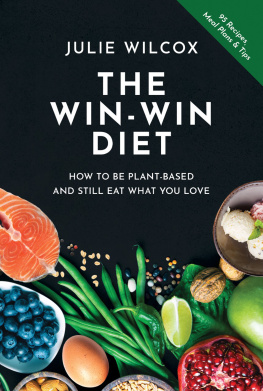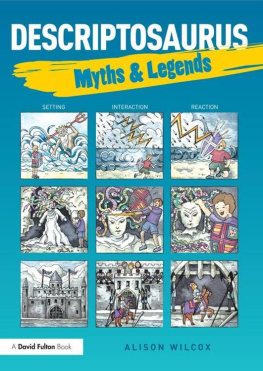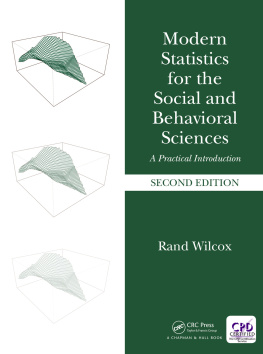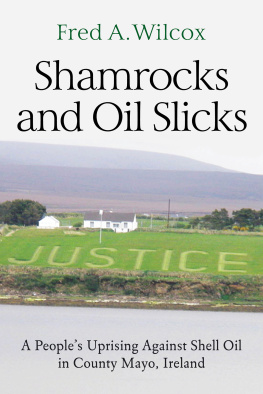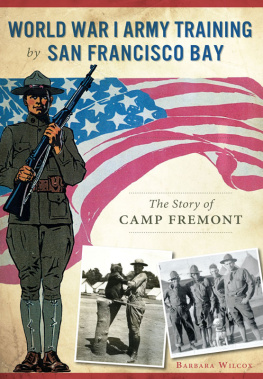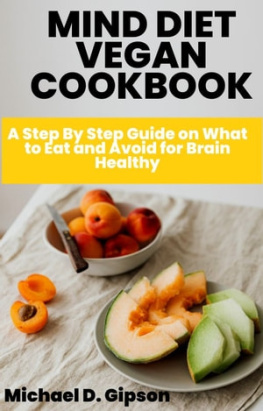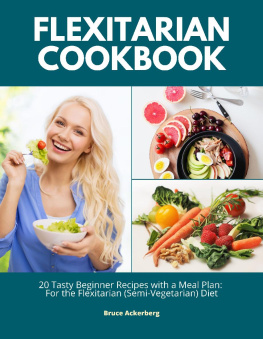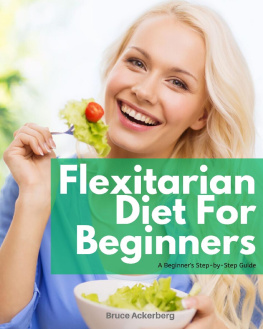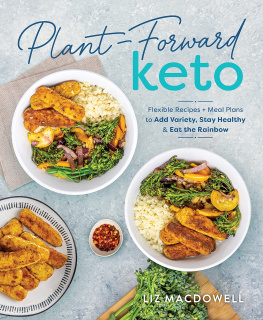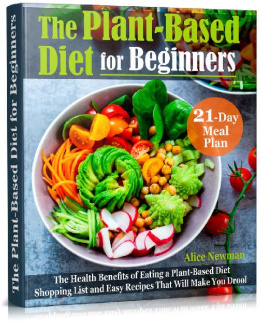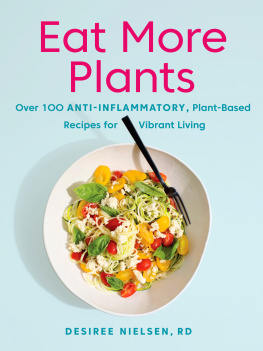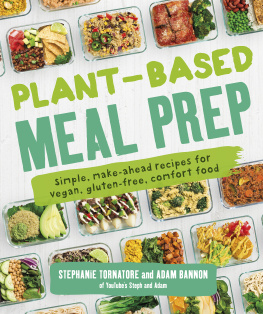Advanced Praise for
THE WIN-WIN DIET
Julie Wilcoxs The Win-Win Diet makes me excited to pivot from my omnivore lifestyle to a flexitarian one. With her guidance in this book, I know that Ill be able to stick to my goals of becoming more plant-based without sacrificing joy.
Dana Cowin, Founder, DBC Creative
After working with Julie one-on-one, I hired her at TBWA\Chiat Day to set nutrition goals for my team and help achieve them. The guiding principles are now codified in her book, The Win-Win Diet. Im so glad shes sharing her wisdom, recipes, and tips with the whole world so everyone can have the extraordinary opportunity we did to enhance health and well-being.
Nancy Reyes, CEO TBWA\Chiat\Day NY
As an Asian American, I was brought up with a high carb, sugar, and sodium diet and given junk food as an award. I also developed a late-night eating habit lifestyle. I wanted to change but as the saying goes, old habits die hard. When I got to know Julie, I was inspired and decided to cut down on my meat consumption. After a few weeks and immediate changes in my physical and mental health, I decided to double down the success by becoming vegan. I have lost almost fifty pounds and have never had the energy and the strength that I have now. The win-win approach has not only helped me lose weight and see other physical changes but has also given me a new perspective on life.
Philip Chong, President & CEO, Quincy Asian Resources Inc.
Julie Wilcox is the real deal. Not only is she fiercely dedicated to her work, she walks her talk. Never have I met a woman so committed to leading a healthy lifestyle without falling prey to the dogma of fad diets we see today. We all have something to learn from her.
Jillian Turecki, Relationship Expert
Julie Wilcox takes you through all you need to know about healthy eating. The Win-Win Diet tells you how to live longer with enthusiasm and joy!
Jana Klauer, MD, author of How the Rich Get Thin and The Park Avenue Nutritionists Plan
The potential benefits of these health-promoting lifestyle recommendations are enormous, and readers will appreciate Julie Wilcoxs patient, individualized, small changes approach to implementing and adhering to a more nutrition-conscious way of eating that can benefit not only each of us, but also reduces animal cruelty and improves planetary wellnessclearly a win-win for all concerned.
Jonathan N. Tobin, PhD, Professor, Department of Epidemiology & Population Health, Albert Einstein College of Medicine/Montefiore Medical Center

A POST HILL PRESS BOOK
The Win-Win Diet:
How to Be Plant-Based and Still Eat What You Love
2022 by Julie Wilcox
All Rights Reserved
ISBN: 978-1-63758-137-7
ISBN (eBook): 978-1-63758-138-4
Cover design by Diana Vives and Mishal Adam Weston
Cover composition by Tiffani Shea
Interior design and composition by Greg Johnson, Textbook Perfect
This book contains information relating to the health benefits of certain ingredients. It should be used to supplement rather than replace the advice of your doctor or another trained health professional. All efforts have been made to ensure the accuracy of the information in this book as of the date of publication.
No part of this book may be reproduced, stored in a retrieval system, or transmitted by any means without the written permission of the author and publisher.

Post Hill Press
New York Nashville
posthillpress.com
Published in the United States of America
To Mia, my inspiration in all things,
for whom I strive to set an example
of vibrant health and well-being.
T he rise in popularity of plant-based eating spurs many questions: What exactly is a plant-based diet? Can I be plant-based and still eat some meat? If so, what kind and how much? How can I ensure that I will get all my nutrients when I am plant-based? How can I prevent myself from eating a meatless diet just as unhealthy as the one I ate before? Can being plant-based reverse my diabetes or hypertension, help me lose weight, or alleviate climate change? Can I afford to go plant-based? Will I be able to eat out? How will I be able to cook so many new foods? Are eggs good or bad? Is dairy inflammatory? And what is the truth about soy?
These are just some of the questions about this topical approach to eating Ive been asked by clients, friends, and family, which is why I decided to write this book. I believe a plant-based diet is an excellent choice for most, because it offers many avenues and a large potential for personalization. Whats more, becoming plant-based is easier than you think, as minimal changes yield a significant impact on your health, the environment, and animal welfare. In Part One of this book, I will explain the evidence in favor of a plant-based lifestyle, delve into the pros and cons of important foods to know about as you transition to this eating pattern, and lay out four approachesflexitarian, pescatarian, vegetarian, and veganto help you determine where on the plant-based spectrum you fall. Then, in Part Two, I will help you put the principles from Part One into action, so that you can successfully maintain your plant-based lifestyle for life. In Part Three, I will show you how to transition from an omnivorous diet to the four I have selected, provide guides to help you assess yourself and your progress, and help you deal with different eating environments. I will explain why it is so important to find a community of support, be mindful, and self-nurture. Lastly, I will show you how to develop your own personalized diet with recipes in Part Four and sample meal plans in Part Five.
The buzz about plant-based diets is growing, and no matter what media youre into, its hard to ignore. On Netflix, the documentaries The Game Changers and Forks Over Knives profile people from all walks of lifefrom an average American struggling with various chronic metabolic diseases to an elite athletewho have transformed their lives with plant-based diets. In a 2019 New York Times article, The Meat-Lovers Guide to Eating Less Meat, Melissa Clark wrote about modifying her meat-heavy diet when she realized that cutting back on animal products, even a little, could benefit the environment. According to Clark, The World Resource Institute, an environmental research group, recommends that wealthy nations cut their beef, lamb, and dairy consumption by forty percent to meet global emissions goals for 2050. Using the forty percent reduction amount as her guide, Clark decided to limit herself to two or three meals per week that included meat, seafood, or dairy. This plan has worked well for Clark and shes been able to stick with it for two reasons: she doesnt deprive herself of animal products completely, which she loves, and she is contributing to the wellness of the earth.
Clark is not alone. Bill Clinton, who remains devoted to a plant-based lifestyle, was one of the first to bring this style of eating to popular culture. In 2010, he announced he had become vegan to save his veins, arteries, and heart. In doing so, he also lost twenty-four pounds. Kim Kardashian has become an advocate of plant-based eating. Soccer star Alex Morgan swears by her plant-based diet as a performance-booster. In his acceptance speech for Best Actor at the 2020 Oscars, Joaquin Phoenix promoted plant-based eating by highlighting animal cruelty in food production. Even medical professionals, known to avoid giving nutrition advice for disease prevention and treatment, are increasingly endorsing plant-based eating, not only for their patients but also for themselves.

